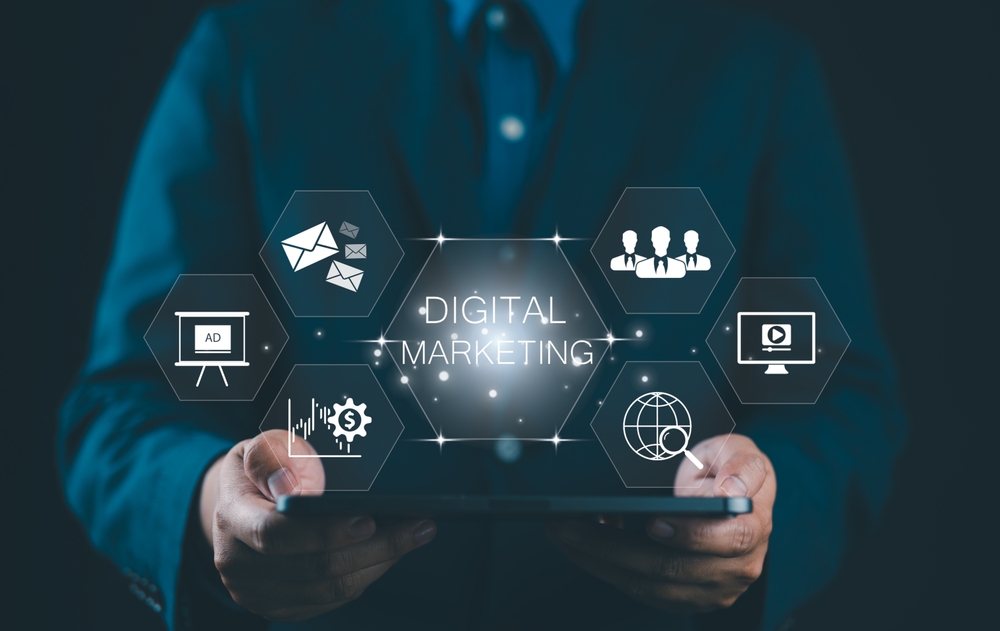The very nature of social media management is changing as technologies and user behaviors evolve along with the emergence of new platforms. Looking into the future, some of the trends are well on their way to transforming how brands and people would be interacting and doing business within the social ecosystem.
Integration of Artificial Intelligence (AI) and Automation
Artificial Intelligence is expected to be the central driver of future social media management. Tools powered by AI fully enhance the framework of content creation alongside schedule optimization to very deep analytics. AI, for example, may analyze huge corpus data to find the best time to drop posts, personalize content, or even create AI-generated characters to interact with users. Meta, the company that owns Facebook and Instagram, intends to allocate artificial intelligence users on its platforms with the objective of increasing entertainment and engagement value.
Rise of Social Commerce
Social commerce is extremely expected to be known by anyone in future, and this will be a seamless integration of social media and e-commerce. Platforms allow consumers to encourage them to purchase directly in social media applications, cutting the buying process at its throat, by removing the frictions apparently inflicted. An instance of this trend is the development of live shopping through social media, where people buy items at the moment while being exhibited during live streams on sites like TikTok and Instagram. Though this has been captured in China, by 2025, it is expected to grow massively in that region and then worldwide.
Evolution of Content Formats
However, a relatively strong appetite for other forms of content is building as brands experiment with long-form videos, interactive content, and even immersive experiences such as augmented reality and virtual reality. More than the content itself, these kinds are extensions to a particular audience and thus earned broader engagement. For example, beauty brands are cashing in on the unique strengths provided by each platform—entertaining and community building on TikTok; interactive content on Instagram; and tutorials on YouTube to maximize reach and engagement.
Emphasis on Authenticity and Community Building
More and more users are putting more stock in authenticity and connection as opposed to polished, corporate content. This encourages brands to start creating communities and connect with consumers in a real way and consider using user-generated content. An example of the shift is the increased number of niche platforms and decentralized social networks; such platforms are beginning to offer spaces for more personalized interaction and interaction with the community. For example, moderated platforms such as Blacksky are emerging that are designed to protect certain user groups from harassment, therefore creating safer and more affirmative online community spaces.
Enhanced Social Listening and Customer Engagement
Sophisticated social listening tools are gradually embracing brands for monitoring conversations and reviewing sentiments and possible responses. This feature now enables much more personalized and timely interactions for improved customer satisfaction and loyalty. High-performing teams are now collaborating across departments-for example, marketing and customer service-wherein work is performed, managed, and responded to social inquiries since they perceive social media as being aligned with the whole business.
Data Privacy and Ethical Considerations
Data privacy becomes more of a concern, ethical impacts of artificial intelligence exacerbated tensions among platforms and brands in a global push for greater transparency and accountability. There is a growing number of regulations on privacy, and the increased awareness of users on how their data is used only adds to this climate that calls for social media managers to up their game in terms of ethics and compliance to retain trust and credibility. The company has also made it compulsory that users label AI-generated content clearly on platform pages to counter any potential risks of AI misusing the articles, such as misinformation spread.
The Growing Influence of Creators and Influencers
This creator economy is going to become very big because of the influencers who play a crucial role in determining what consumers do and how they visualize a brand. Creators are going to have a more official role in media and politics in the future as they are recognized as integral professionals in these sectors. Marketers now increasingly work with brands and influencer marketers to reach their specific people. The trend is going to remain as the lines among content creators become blurrier and blurrier with traditional media.
Platform Diversification and Niche Communities
People are getting into cornered niches of social networking sites. Not all of them depend on mainstream programs like Facebook and Snapchat. These changes have made it necessary for the social media manager to strategize on how to utilize various channels with specific audience cultures. It has also been a trend that is affecting how marketers approach social media. The rise of decentralized social media is giving strength to the users to have a more personalized, user-centric social experience.
Integration of AI in Content Creation and Optimization
Generative AI is conditioning itself as a format or very smoothly becoming a seal or essential ingredient in social media strategy-as it will now help in content creation, content optimization, and performance prediction. AI tools can generate texts, images, and videos, which will enable social media managers to produce content easily and adapt it according to their audience. Apart from this, it parses trends and helps brands refine their strategy for increasing engagements and reach. For instance, AI works in optimizing content and contract negotiation while influencing changes in social media for influencers or brand representation.
The Future of Social Media Management Tools
The evolution of social media management into a holistic platform appears to facilitate the linking and strengthening of connections between brands and consumers. These tools are also going toward integrating such advanced services as analytics, social listening, customer engagement, and e-commerce into a seamless approach to managing a brand online.
Conclusion
The years ahead in the management of social media are bound to demonstrate emerging technologies and changing user behaviors as new platforms and tools seem to endlessly arise. Social media managers will, therefore, continue to stay agile and embrace innovation while developing and, most importantly, nurturing an authentic relationship with their audiences. Staying in tune with changing scenarios and adapting strategies accordingly at the same time allows a brand to effectively use social media in making stronger bonds with consumers while translating them into users of some of their products or services.









